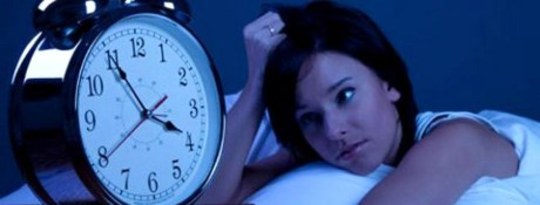
Research findings suggesting that sleep loss and anxiety are closely linked were among those presented at Neuroscience 2018, the annual conference of the Society for Neuroscience held in San Diego, California. The news isn’t all dire, however—this year’s event offered some science-based encouragement along with causes for concern.
Neuroscience continues focusing on the mysteries of sleep (and yes, it’s still plenty mysterious despite its media ubiquity)—not only the perils of failing to get enough, but also the list of vital roles it plays in our brains.
Research discussed at this year’s event touched on a range of findings, from sleep's roles in memory consolidation to garbage removal in brain tissue. We’re learning via more studies each year that sleep, including well-placed naps, facilitates the brain’s consolidation of information—moving memory freight from short-term to long-term storage, and sharpening its accessibility for when we need it. Without sleep, memory simply doesn’t happen.
We’ve also learned that sleep provides the brain with an invaluable period of transporting toxins out of neural tissue through a complex garbage-removal system. Operating separately from the body's lymphatic system, the brain’s trash-disposal apparatus seems dependent on sleep to function properly. Links between neurodegenerative diseases like Alzheimer’s and the accumulation of toxins in brain tissue are exceptionally strong, and sleep loss is a likely culprit.
A panel session at this year’s event called “Threats of Sleep Deprivation” highlighted new findings on the connection between sleep loss and anxiety.
“Sleep deprivation isn’t what we usually think it is,” said session moderator Clifford Saper, MD, Ph.D., of Harvard Medical School. It’s usually not “staying up 40 hours all at once,” but rather gradually losing sleep over time.
Saper noted that most sleep deprivation is more specifically REM (rapid eye movement) deprivation, referring to the period of sleep during which the body becomes more relaxed while the brain becomes more active. During the normal cycle of sleep, people spend about 20 percent of the time in REM, but disrupted sleep derails the cycle, with consequences for memory, the nervous and immune systems, and more.
Research presented during the panel found that brain activity after periods of sleep deprivation mirrors brain activity indicative of anxiety disorders. The amygdala—seat of the brain’s fight or flight response—is particularly “aroused” when we haven’t slept enough.
One study found that the brains of participants who’d experienced even brief periods of sleep deprivation showed greater activity in a complex of “emotion-generating regions of the brain” and reduced activity in “emotion-regulating regions.”
These findings are linked to why people with anxiety disorders often report an explosion of anxiety first thing in the morning. Poor sleep seems to put the brain on-guard by triggering spikes in stress hormones like cortisol, producing an early a.m. “anxiety bloom” even before the day begins.
The panel also addressed the "vicious cycle of anxiety and sleep loss"—while sleep loss is often a precursor for anxiety disorders, anxiety also leads to sleep loss. The conditions fuel each other, with compounding effects.
Thankfully, science is also serving up some good news with practical applications. Because the link between anxiety and sleep is so strong, researchers reported that “sleep therapy” could be an effective method of treating anxiety disorders. Finding ways to improve an anxiety patient’s sleep could be one of the most overlooked and accessible treatment opportunities.
“The results [of the research] suggest that sleep therapy could reduce anxiety in non-clinical populations as well as people suffering from panic attacks, generalized anxiety disorder, post-traumatic stress disorder, and other conditions,” said panelist and lead study author Eti Ben-Simon, Ph.D., of the Center for Human Sleep Science at the University of California, Berkeley.
And the really good news is that many of the negative effects of sleep loss appear reversible after just one night of peaceful sleep.
“For healthy people, research shows that one night of recovery sleep brings systems back online and brings anxiety levels back to normal,” added Dr. Ben-Simon.
Which may help explain why previous research has found that catching up on sleep during the weekend turns out to be effective—a couple nights of solid sleep can balance many of the negatives from drudging through stressful weekday nights. It’s not an ideal solution (the gold standard is consistently sleeping well), but certainly better than not recovering at all.
The takeaway: even if you’re struggling to sleep well, make sure to at least get a recovery night or two during the week to tune down the emotion-generating parts of the brain and bring emotion-regulation back online. That’s just one among many benefits of getting a good night’s sleep, but an especially crucial one when it comes to managing anxiety.
Research discussed in this article was presented at Neuroscience 2018 the annual conference of the Society for Neuroscience. Research presented at the conference is generally considered preliminary prior to being published in peer-reviewed journals.
© David DiSalvo



